
Lot 44
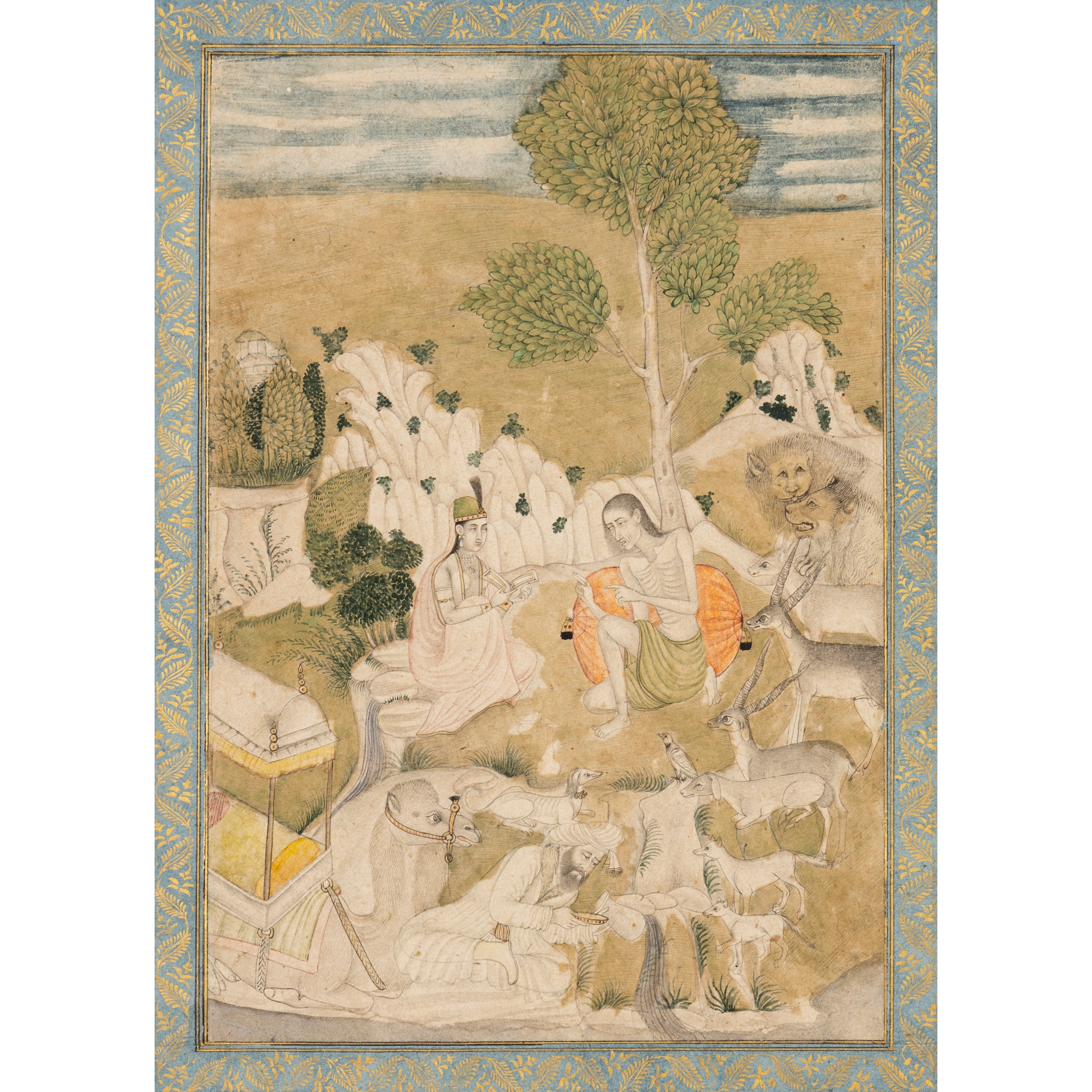
LAYLA VISITING MAJNUN IN THE WILDERNESS ‡
INDIA, AWADH, LUCKNOW, CIRCA 1770
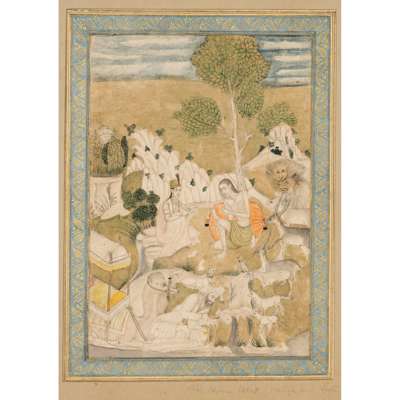
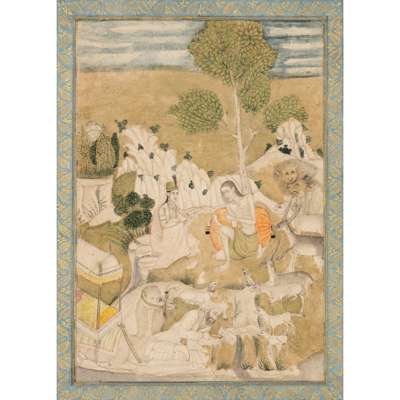
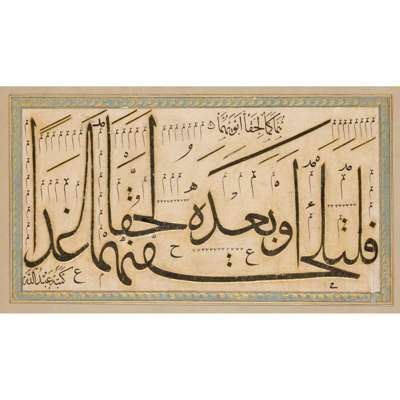


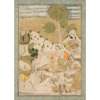
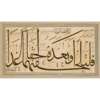
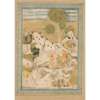
Auction: 10 December 2025 from 14:00 GMT
Description
gouache, pen and pencil on paper heightened in gold, light blue and gold floral border, gold and polychrome floral outer border (covered by mount), depicting a well-dressed Layla visiting a gaunt figure of Majnun seated under a tree against a bolster, Layla's camel is in the foreground with an attendant and her trusted dog, surrounded by wild animals including ibex, foxes and birds, amidst a rocky landscape, verso with an elegant line of calligraphy in black ink highlighted in gold comprising an Arabic qasida, within the same light blue and gold floral border, mount inscribed in pencil in German with Kat. No. 327, mounted, glazed and framed
Dimensions
28.4cm x 20.6cm
Provenance
Collection Friederich Sarre (1865-1945); thence by descent, and; Auktionshaus Rotherbaum, Hamburg, 122. Weihnachts Auktion, 12 December 2020, lot 449.
Friedrich Paul Theodor Sarre (1865 - 1945) was a German Orientalist, archaeologist, and art historian known for his extensive collection of Islamic art. Possibly the attraction to this miniature, in addition to the story, is the Arabic calligraphy on the reverse, which would explain why it formed his collection. Sarre also traveled widely throughout the Middle East, collecting artworks - particularly from Persia and Constantinople. His collection was first exhibited in Berlin in 1899 and later in Paris at the Exposition des arts musulmans (1903). He donated most of these works to the Kaiser Friedrich Museum in Berlin, where he served as director of the Islamic Department from 1921 to 1931.
The collection of a German enthusiast.
Footnote
The calligraphy on the reverse of the painting is an Arabic qasida, signed: ‘Abdullah wrote it’.
In the versions retold by the Persian poets Nizami and Amir Khusrau of Delhi, the ancient Arab tale of the star-crossed lovers Layla and Majnun became a beloved theme in Mughal-period painting. The story begins with the young Layla and Majnun meeting as children. Later, when Layla’s family forbids their union, the heartbroken Majnun - whose name means ‘mad’ or ‘possessed by jinn’ - wanders alone through the wilderness. There, he recites verses of love for Layla and lives among wild creatures, reigning over them like a human king.
In this later scene from the story, the now-married Layla visits Majnun in his solitude with the animals. She is seen as well off, dressed in beautiful clothes, a camel with a howda rests in the foreground, a dog with an elegant collar seems to belong to her entourage along with an attendant who is offering water to the animals. Layla is holding some papers in her hand, probably a collection of Majnun's poems. Emaciated yet dignified, Majnun greets her with courtesy, reclining against a bolster, perhaps one she brought to him to keep him comfortable.
For another version of this painting in the Ashmolean Museum, Oxford, see accession number EA2012.219, and for an earlier version in the Walters Art Museum, see accession number W.624.115A.







